The Saudi government has been able to bring the two parties fighting in Sudan, a northeastern country of Africa, to a settlement meeting in Riyadh.
Sudan’s army chief J Abdul Fattah al-Burhan and the head of his rival militia force, General Mohamed Hamdan Dagalo – better known as Hemeti – have both sent representatives to Riyadh.
Since Saturday, they have started talking face to face there with the mediation of the Saudi government.
In the last three weeks, about six hundred people have died in Sudan. Hundreds of thousands of people have fled to neighboring countries.
Hundreds of thousands of foreign nationals were rescued by warships and warplanes.
Africa’s Sahel and Horn of Africa regions have long been plagued by conflict.
There is deep concern that the security of the whole region will become more fragile if the conflict in Sudan is prolonged.
Many have already begun to describe the conflict in Sudan as the civil war of old.
The African Union, as well as the East and Horn of Africa regional alliance IGAD, have been seeking a settlement from the start. But Saudi Arabia has been the most active in stopping this new war in Africa.
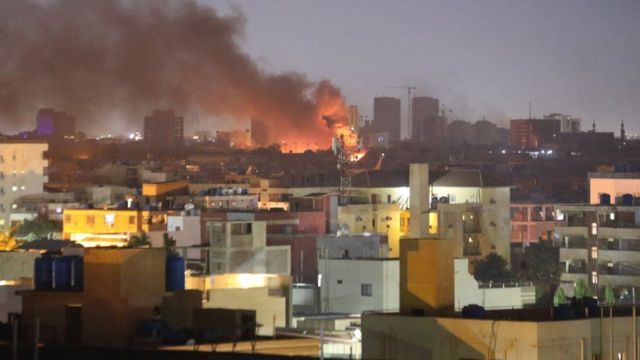
The BBC’s Beverley Ochieng in the Kenyan capital, Nairobi – a close observer of politics and security in East Africa and the Sahel – says the Saudi mediation initiative is gaining more weight than any other side.
“At the very beginning, the IGAD coalition took the initiative to settle. They continued to pressurize the two sides to sit in Juba, the capital of South Sudan. But it didn’t work. But it seems that both sides in the conflict in Sudan are interested in Saudi mediation,” Miz Ochieng told BBC Bangla.
Why is Saudi Arabia such a headache?
Why did the Saudis get so excited about ending the Sudanese conflict?
Beverly Ochieng said the relationship between Sudan and Saudi Arabia has a historical perspective.
“You could say that in a sense Sudan is a very exceptional country. It is an African country but the Arab countries of the Middle East are the main driving force behind the country’s politics and economy, especially Saudi Arabia,” said Miz Ochieng.
Sudan is also part of the Sahel, Horn of Africa and Red Sea regions.
But a large part of Sudan’s society and state – especially the Arabic-speaking Sudanese rulers and elites – have historically had close ties to the Gulf Arab states.
Sudan was a major partner of the Saudi-led coalition in the Yemen war. Many Sudanese soldiers and RNF militias have fought in Yemen.
The four countries that brokered the deal last year to hand over power in Sudan from military rule to a civilian government include Saudi Arabia and the United Arab Emirates, although none of them are from Africa.
“Saudi Arabia as well as the UAE consider the project of security and political reform in Sudan to be theirs. So they don’t want this project to fail in any way,” Saadi Hamdi, a Middle East political risk analyst in London, told BBC Bangla.
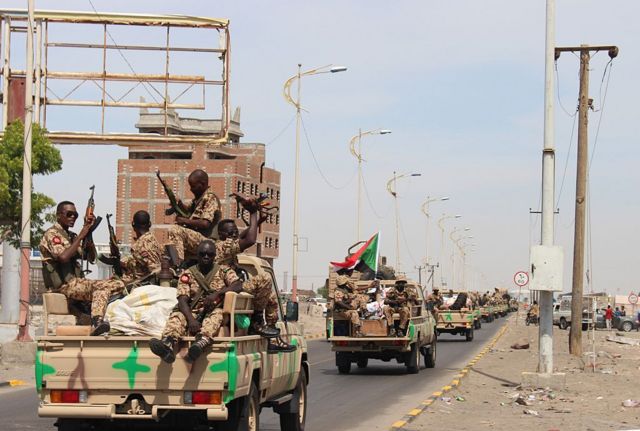
Geopolitical interests
Saadi Hamdi thinks that, apart from historical and cultural relations, Saudi Arabia’s special activity on the Sudan conflict is mainly due to its geopolitical interests. He said the same applies to the UAE.
“Why are the Saudis so concerned about Sudan? The simple answer is that their political, security-related interests are behind it. “Saudi Arabia or the UAE will not establish an Islamist government in China Sudan,” said Mr. Hamdi .
After the Arab Spring, when governments were overthrown by popular protests, Islamists took power in Arab countries where elections were held – such as Egypt, Tunisia.
This has alarmed Saudi Arabia and the UAE, who are accused of being behind the overthrow of those governments.
“This is why there have been no elections in Sudan since the fall of Omar al-Bashir in mass protests. With the help of the US, Saudi Arabia and the UAE were able to install an interim unelected government instead of an election,” said Sami Hamdi.
J. in the midst of tension with Hemeti. Burhan had recently threatened to hold elections, which may have worried the Saudis and the UAE.
“There are clear indications that the forces loyal to Jay Burhan put Hemeti’s forces under considerable pressure in the fighting.
As a result, the Saudis and the UAE may fear that if Hameti loses this battle, Jay Burhan may hold an election, and the Islamists will win that election.”
Sami Hamdi believes that this is mainly why the Saudis stepped up to mediate so that Hemet’s RSF could survive.
Mr. Hamdi’s suspicion may not be unfounded.
Because various reports from Sudan are saying that the RSF militias are under a lot of pressure in the fight.
Hemeti especially congratulated Saudi Arabia and America for organizing this settlement meeting in Riyadh.
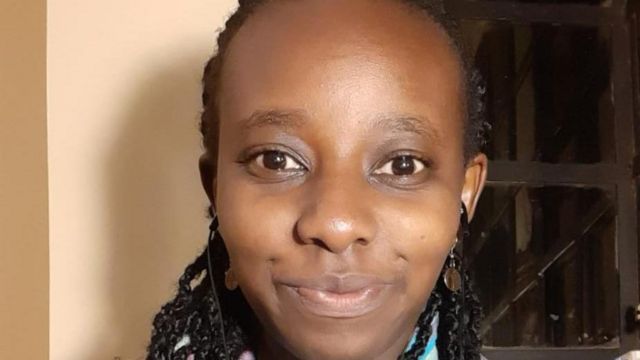
Gold mines, crop fields and ports
However, many observers believe that Saudi Arabia sees the conflict in Sudan as a threat to its own ambitious economic plans rather than political or strategic interests.
Because many of the economic development projects undertaken by Crown Prince Mohammed bin Salman without oil resources are near the Red Sea coast.
Neom City, a $500 billion state-of-the-art technology-based city, is also there. This area is not far from the Red Sea coast of Sudan.
“What the Saudis absolutely do not want right now is another Syria on the edge of the Red Sea,” Aziz Alghassian, a Saudi foreign policy researcher, wrote in Middle East Eye, a research journal.
The Saudis fear that if the Sudanese conflict spills over into neighboring countries, it could make it harder to attract investment to their projects on the Red Sea coast.
Moreover, after the overthrow of Bashir in 2019, Saudi Arabia has the opportunity to step into Sudan, which is rich in natural resources and agriculture.
Last year they announced an investment of 3 billion dollars in the development of agriculture and mineral resources of Sudan.
The UAE is also concerned about its economic interests.
They are seeking to dominate commercial shipping by sea from the port of Sokotra in Yemen to Somaliland in the Horn of Africa.
In December, the Abu Dhabi Ports Authority signed a $6 billion investment deal to build a new port 200 miles north of Port of Sudan.
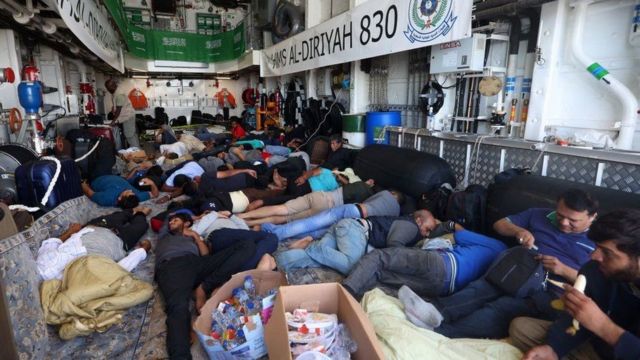
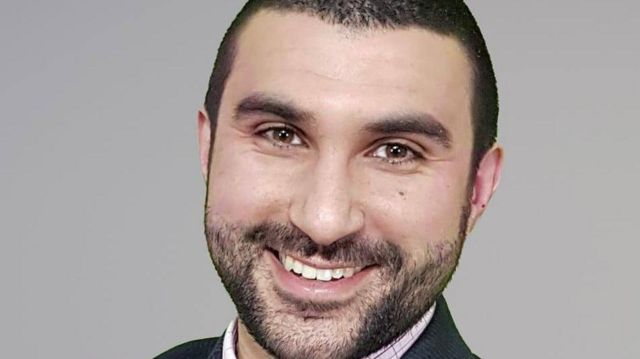
Will Saudi mediation work?
Will General Burhan and Hemeti shake hands after the meeting in Riyadh?
Beverly Ochieng is skeptical about such a possibility.
“Both generals are violating the ceasefire agreement one after the other. Behind these agreements are Saudi Arabia, the United States and various regional alliances in Africa.
But they are not listening to anyone. I think they will try to protect their own interests by going to their settlement meeting instead of compromise,” said Miz Ochieng.
“The Sudanese military elite will never accept that power-influence is slightly eroded. On the other hand, RSF interests are involved in gold mining and trading,” said Beverly Ochieng.
As well as Hemet’s personal political ambitions.
Debate is raging in the country about how neutral the Arab Gulf countries are in Sudan.
There are allegations that the UAE is secretly supporting the RSF.
A few days before the start of the conflict, Hemeti went to Abu Dhabi and spoke with the president of the UAE.
Probably from this doubt J. Burhan visited Qatar in March, with which neighbors Saudi Arabia and the UAE have bitter enmity.
For these reasons, many observers think that it may become difficult to convince the two Sudanese generals to settle.
That means, there will be a conflict and there is a risk that the war will spread to the surrounding countries.
There are many signs that the war may spread.
South Sudan has started trying to close their border. There is a strong possibility that Shad will join the fight.
Libyan militia leader Khalifa Haftar is involved. There are many allegations that he is sending arms to Hemet.
Mr. In Hamdi’s words – Sudan may become a venue for international shadow wars, and if this is not prevented, the mineral-rich country of 4.5 million people will become a failed state.
And if the course of events unfolds like that, it will be an extreme nightmare for Saudi Arabia.
I am an experienced financial analyst & writer who is well known for his ability to foretell market trends as well.

